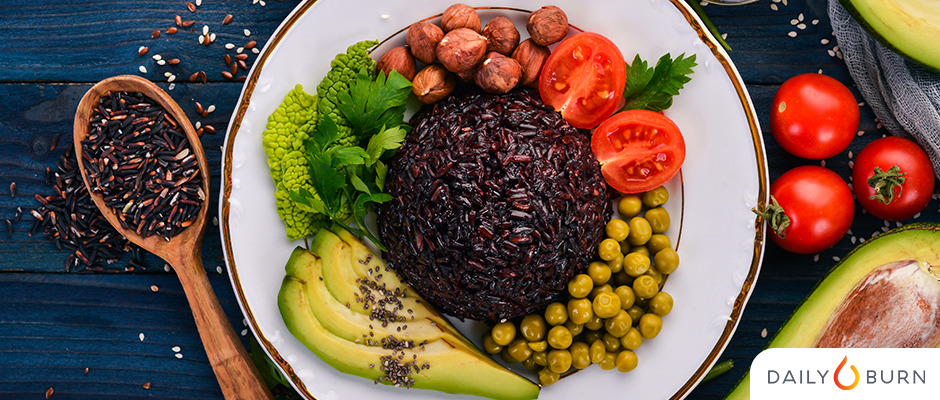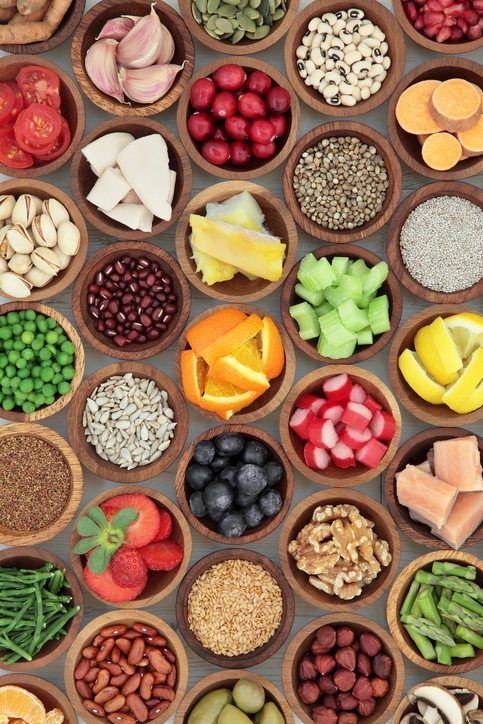
Before you can create a nutrition plan, you must be able to read and understand a nutrition label. You may be familiar with the Choose My Plate program. This has helped millions to get the right balance between food groups. However, many of us still struggle to find a balanced meal. Here's how to make sure your meals are balanced and healthy. Follow this guide to eat the healthy foods you need to feel great.
Although most nutrition planners share the same principles, their approaches to achieving their goals may differ. Some planners are focused on macro-level economy, while others focus more on micro-level economies. Some planners concentrate on a single sector, such agriculture. Another group emphasizes organizational factors and uses analytical methods. Other approaches are more intuitive and use a combination of all three. A fourth group concentrates on organizational factors. It doesn't matter which approach you choose; it is important to understand the differences and how they differ.

Meal planning can help you achieve your goals, whether you are looking to improve your nutrition or prevent chronic lifestyle diseases. Meal planning helps you enjoy a variety of foods, and it can help you increase your intake of fruits and vegetables. This process can be fun, no matter what your goals are, and it will help you get the right nutrients. You've reached the right place if a nutrition strategy is what you need. To help you get started, we've provided some suggestions below.
Planned meals can help you save time as well as money. Meal planning will eliminate the need for you to rush to the grocery store. Planning can also help you to control your budget and portion sizes. You can keep your purchases as close as possible to the date you purchased them. This will reduce the risk of you overeating. Consistency is key to success. Although it takes practice, it is worth it. It will pay off in the end.
It is important to plan your meals before you start a weight-loss program. It can help reduce your intake of unhealthy foods and make you eat more healthy. It can help you lose weight and improve your health. You will be able to stay on track with your goals by creating a plan. Once you know what to eat and when, you can then make better decisions. A nutrition plan will help you eat healthier and prevent unhealthy food choices.

It's a great way for you to eat healthy, and to stick to your weight-loss goals. By taking the time to prepare your meals ahead of time, you'll save valuable time and prevent yourself from eating unhealthy foods when you're hungry or tired. This will help to keep you on track and help you avoid unhealthy eating habits and maintain a healthy body weight. You will be able to achieve your weight loss goals by eating a balanced diet. It will also help you avoid eating foods high in saturated fats and other unhealthy ingredients.
FAQ
Is it true that overeating protein causes kidney stones?
Protein is important for maintaining healthy bones and tissue. However, too much protein can result in calcium excretion through the urine. This can cause kidney stones.
Not everyone who eats more than 2g of protein per kilogram (2.2 lbs) of bodyweight will get kidney stones. You don't have to eat a lot of protein to get kidney stones.
By being careful with your sodium intake, you can prevent kidney stones. Sodium regulates the body's water balance. A high level of sodium can increase the risk of developing kidney stone.
You can also reduce your intake of proteins if you develop kidney stones. For most people, protein provides half their daily caloric requirements. Reduce your intake of protein and you will likely lose weight.
If you do decide to eat more protein, don't go overboard. Aim for less than 20% of total calories from protein.
How many calories should I consume daily?
The exact amount varies depending on the person. An average person needs 2000-2500 calories per day. Based on your age, gender, height and activity level, you will need to calculate how many calories you require.
What Is The Best Way To Lose Weight?
Losing weight is easier said than done. Many people give-up easily because they don’t have the right information.
However, there are some simple steps that you can take to shed those extra pounds.
First, ensure you eat fewer calories that you burn. If you are eating more than you are burning, then you are going to gain weight.
To burn all those calories, you should also start exercising. You have the option of doing jogging or walking or cycling, as well as dancing.
Third, stop smoking cigarettes or drinking alcohol. These habits can cause you to consume more calories that you would otherwise.
Fourth, you need to cut back on fatty foods and junk food. You can replace them by healthier choices such as fruits, vegetables or lean meats.
Fifth, you should change your lifestyle to adopt new habits. You may have to get up before the rest of the world to exercise.
Sixth, discipline and following a diet plan are essential.
You can also burn excess calories by joining a gym, or taking an aerobics course.
These simple tips will help you quickly see results.
How fast can my body be transformed?
The first step is to change your mind. It is important to first make the decision to change.
After you have made the decision to change, you should commit to working towards your fitness goals for at minimum 3 months.
Then you need to find a program that fits into your lifestyle.
Realistic expectations are also important. If you are unwilling to put in the time and effort necessary to achieve your goal, don't waste your money on a gym membership.
Instead, use your own free time to exercise outdoors.
Walk around your block for an hour every day to burn calories and help you lose 1 lb per month.
Now that you have an idea of what you want, start planning how to arrange your life to follow this plan.
This includes making sure that you schedule a time to work out every morning before leaving for work and take breaks throughout the day to move.
When you achieve milestones, reward yourself. You might be able to buy clothes and accessories that reflect your accomplishments.
Statistics
- By John Thompson Take a whopping 38% off a set of PowerBlock Pros. (menshealth.com)
- According to the American Academy of Dermatology (AAD), men over 50 are at a heightened risk of developing it. (healthline.com)
- An estimated calorie range for moderately active adult males falls between 2,200 to 2,800 calories per day, depending on age. (eatright.org)
- According to the American Heart Association, blood pressure should be checked at least once every two years, beginning at age 20. (my.clevelandclinic.org)
- Get free shipping and 25% off today. (healthline.com)
External Links
How To
What nutrients does a person need every day?
Men require daily nutrition for healthy growth and development. The body requires vitamins, minerals, proteins, carbohydrates, fats, water, fiber, and other essential elements.
Also, the male body requires certain nutrients at specific times during the day. Your body makes hormones, antibodies and enzymes when you are asleep. When you get up, protein is used to repair and build muscle.
At night, your body breaks down fat and stores the extra energy as glycogen. During this time, your body needs fewer calories but still needs sufficient nutrients. You can have a snack at night if you feel hungry.
Working out requires adequate carbohydrate and protein intake. If you exercise hard, you might feel muscle soreness.
To prevent this, you must consume carbs and protein within 2 hours of training. Your body will use stored glycogen to produce glucose for energy.
In addition, you must consume protein immediately after completing your workouts. This prevents muscle tissue being destroyed while you're sleeping.
Your body can produce lactic acid during intense physical activity. It is a form of lactic acid that builds up in the bloodstream. This causes fatigue. You can avoid this by eating carbohydrates-rich foods like fruits and veggies.
Carbohydrates are a good source of energy to help you recover from hard exercise.
Your diet may include lean meats like fish, eggs, milk cheese, yogurt or beans as well as lean proteins such as fish, eggs, egg yolks, cheese, yogurt, bean, peanuts and seeds.
All these foods are high-quality sources of protein. Protein promotes muscle growth and repairs damaged tissues. Protein also supplies the amino acids your body requires to make sex hormones, such as testosterone.
A healthy skin, nails and joints requires sufficient dietary fats. Healthy men need between 20% - 35% of the total caloric intake to be fat.
Fat helps keep your heart strong and protects against cancer. Your brain also functions properly thanks to fat.
Vegetable oils such as sunflower oil and soybean oil can provide most of your fat needs.
These oils are high in monounsaturated fatty acids (MUFAs). MUFAs reduce cholesterol and inflammation. They protect your cells from damage by free radicals.
Saturated fats (SFAs) are found mostly in animal products like meat, dairy products, and butter. SFAs are known to raise LDL ("bad") cholesterol and raise triglycerides. They also promote weight gain and belly fat.
Plant-based oils such as vegetable oil, nuts, seeds, or grains are rich in polyunsaturated fats (PUFAs). PUFAs can improve cardiovascular function and reduce inflammation. They can also control blood sugar levels and cholesterol.
Low HDL ("good") cholesterol can lead to erectile problems in men. Consuming high amounts of saturated fats can increase bad cholesterol and lower good cholesterol.
Men who eat lots of red meat or pork can develop prostate problems. This is because these foods contain high amounts of nitrates. High temperatures can cause nitrates to become nitrosamines. These compounds can cause lung cancer.
Nitrites and other harmful chemicals are common in processed meats. Avoid them.
The American Heart Association recommends that you limit your intake of red meat to 2 per week. Instead, choose poultry or fish, beans, tofu and whole grain bread.